The prolific Pacific Northwest is home to the largest temperate rainforest on planet earth. It’s pretty magical. Not to mention the spectacular contrasting ecosystems, just take Olympic National Park. It ranges from dramatic alpine peaks to an ancient lush green jungle. That’s the Pacific Northwest we’ve grown to love.
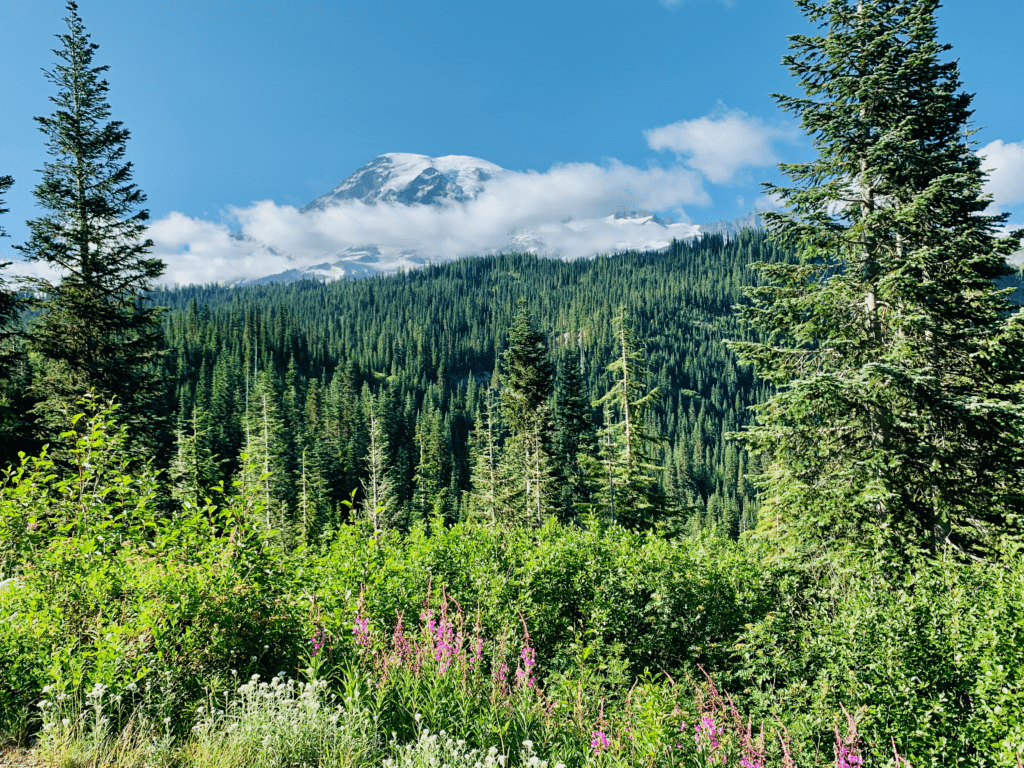
At the start of summer 2020, we were living in Southern Oregon. We had already collected Junior Ranger badges at a few beloved parks we had visited over the years, like Yosemite, Pinnacles, Crater Lake, and Oregon Caves. Well this time we set a goal to collect National Park Junior Ranger badges of the Pacific Northwest.
Lewis and Clark National Park in Oregon
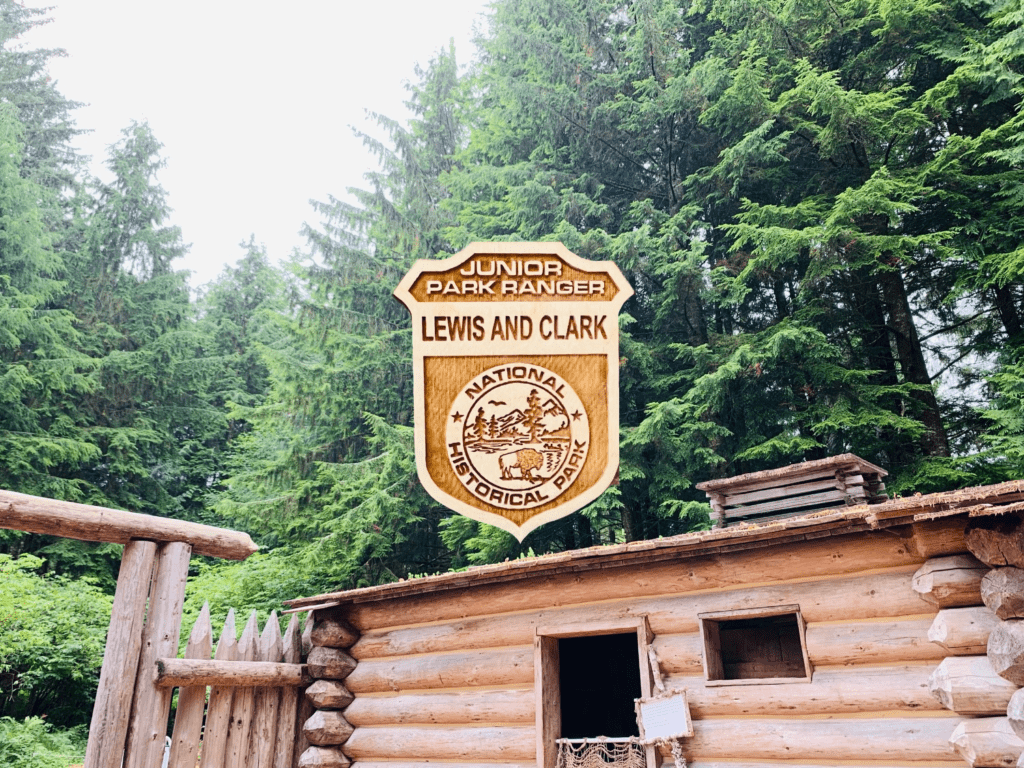
Our first stop was Lewis and Clark National Park, and it was one of the highlights of the entire trip. The Park Rangers on staff were outside displaying First Nation material culture, like baskets, cedar hats and glass beads. All while answering all the kids’ many questions. But then above and beyond anything I have ever seen at a National Park, there was an actual historical reenactment. They took us back to 1805 when the Lewis and Clark Corps of Discovery reached the Pacific Ocean.
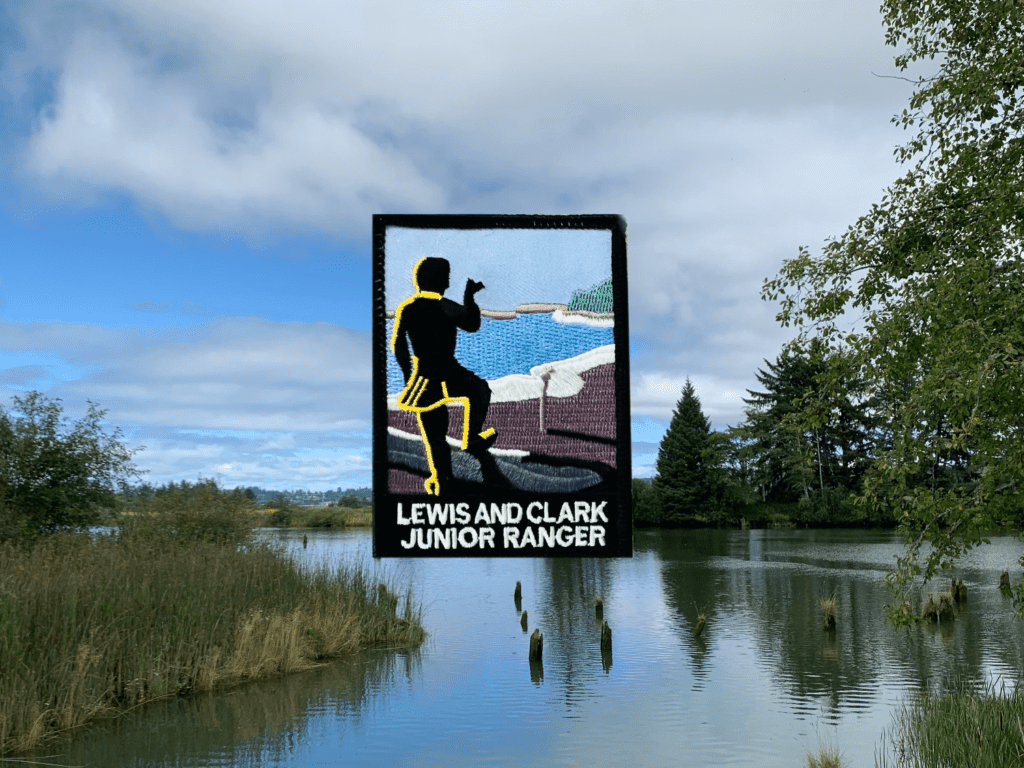
Learning how the Columbia River Basin tribes thrived in the surrounding fertile lands and developed a rich culture heritage really left an impression. It was that that modern consumer society might be what is primitive. After hearing how they used the land, our kids won’t forget the importance of the red cedar tree to the Chinook and other Columbia River Basin tribes.
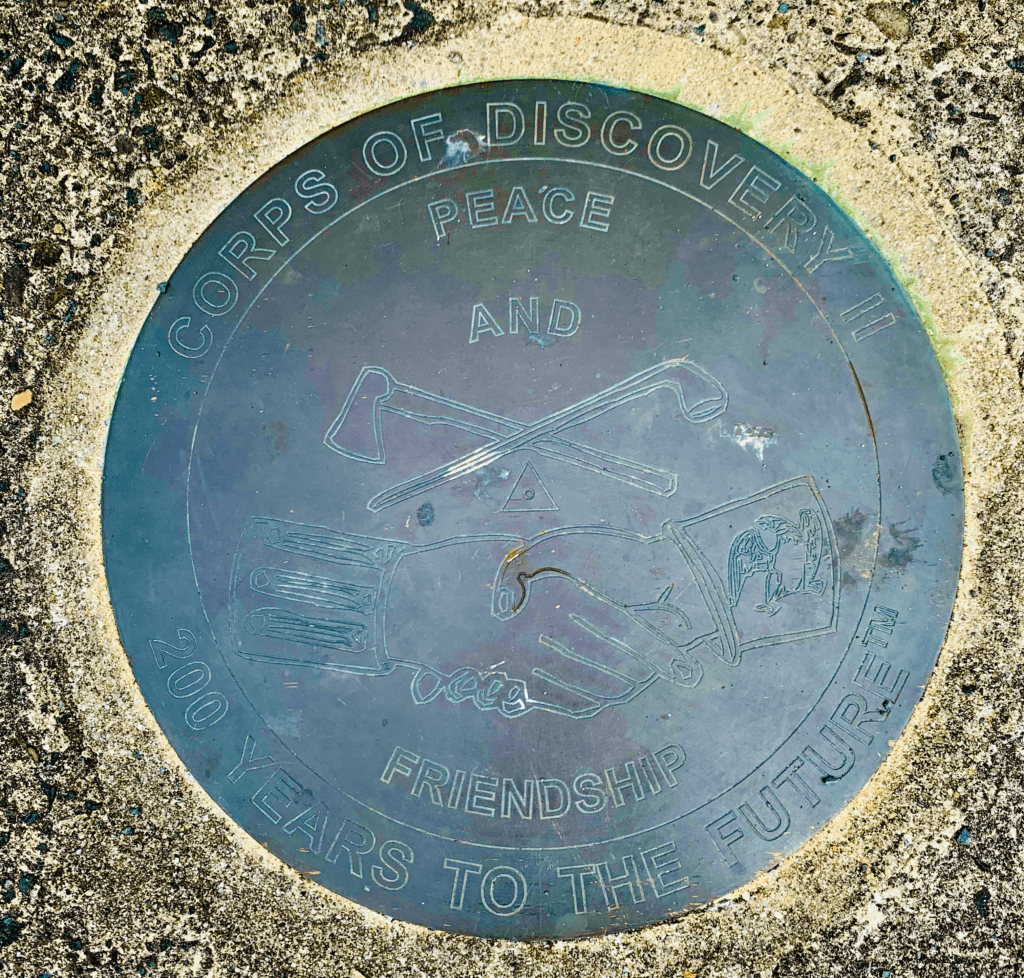
Visiting Lewis and Clark National Park is a jump back in time. Where we felt how the Corps of Discovery’s role in the expansion of the vast American West was by the given and forgotten promises of the 89 Peace Medals. And of course, not to forget that Lewis and Clark National Park taught us about a distinguished and loyal voyager of importance on the Corps of Discovery, Capitan Lewis’ Newfoundland dog, Seaman. Even written on the departure letter is: “Lewis’ dog Seaman also accompanied the explorers.”
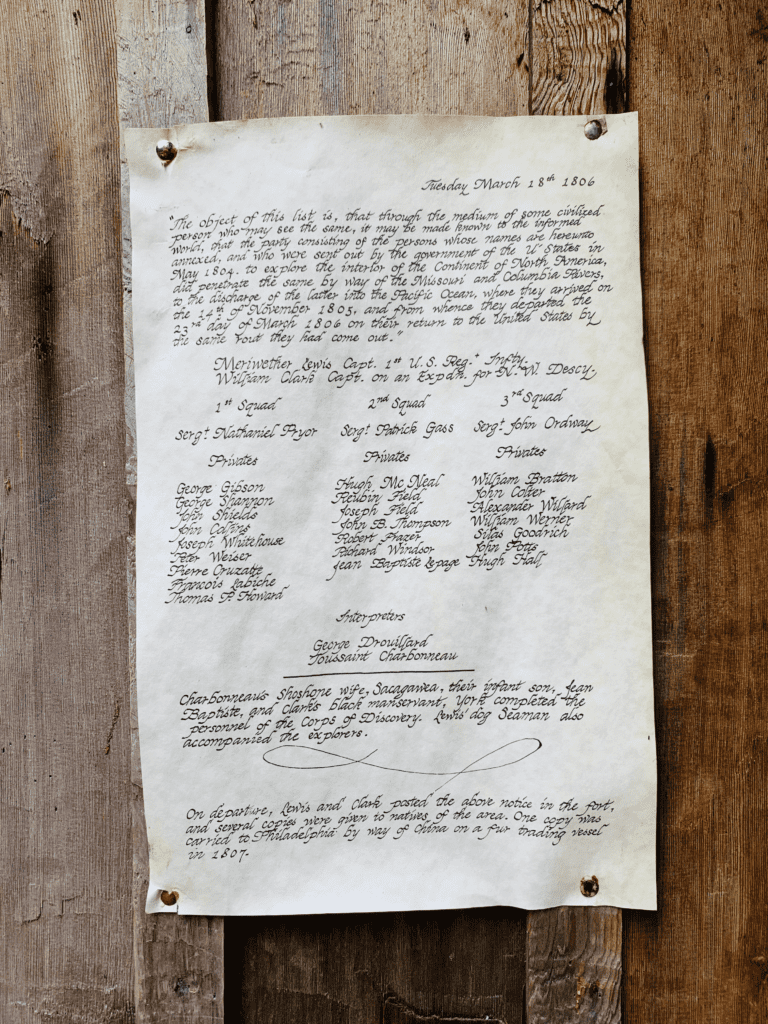
Mount Rainier National Park in Washington
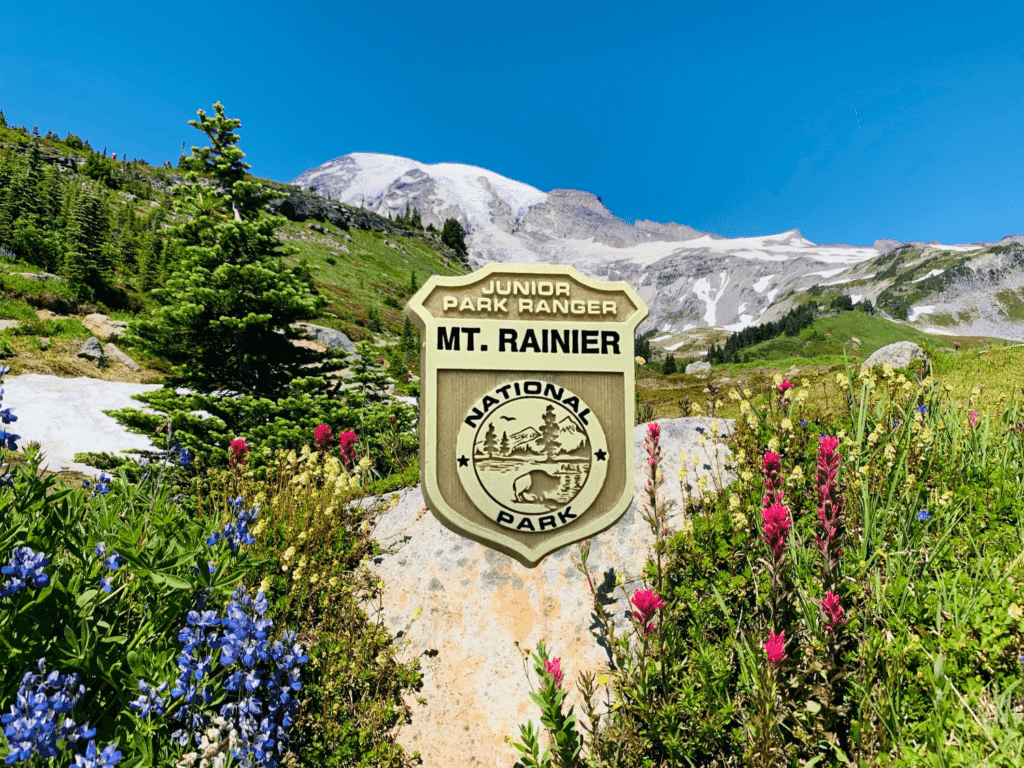
Next, we set out for Mount Rainier National Park. Our original stop was for just a day, and it was so magnificent that at the end of the whole van trip we actually went off route to swing back to Mount Rainier again. It is entirely impossible to take in Mount Rainier in all it’s exquisite alpine and floral grandeur in a mere day.
At Mount Rainier National Park, there was lots of opportunity for glacial river crossings over sturdy bridges, with rapid waters storming under your feet. We took in the otherworldly milky hue of the ice cold waters due to its glacier flour, and made kerns.
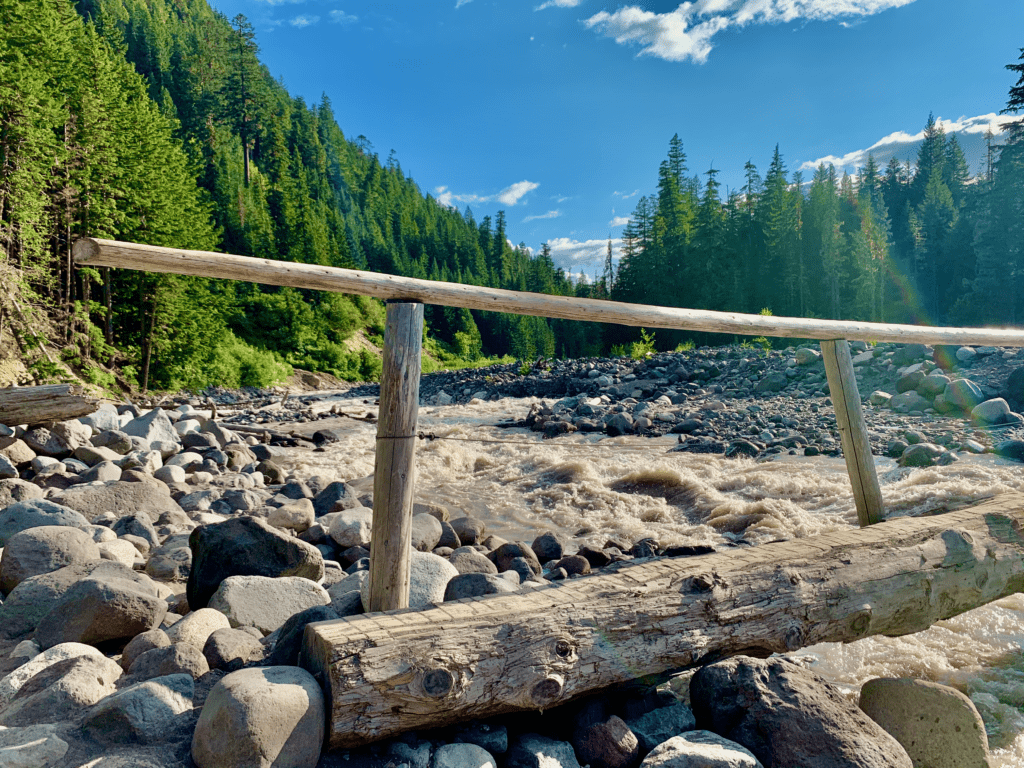
For otherworldly colors, head up to Paradise, where quite literally, the words inscribed on the stairs tell it all, “the most luxuriant and the most extravagantly beautiful of all the alpine gardens I ever beheld in all my mountain-top wanderings” – John Muir, conservationist, 1889. It is like stepping into a fairytale.
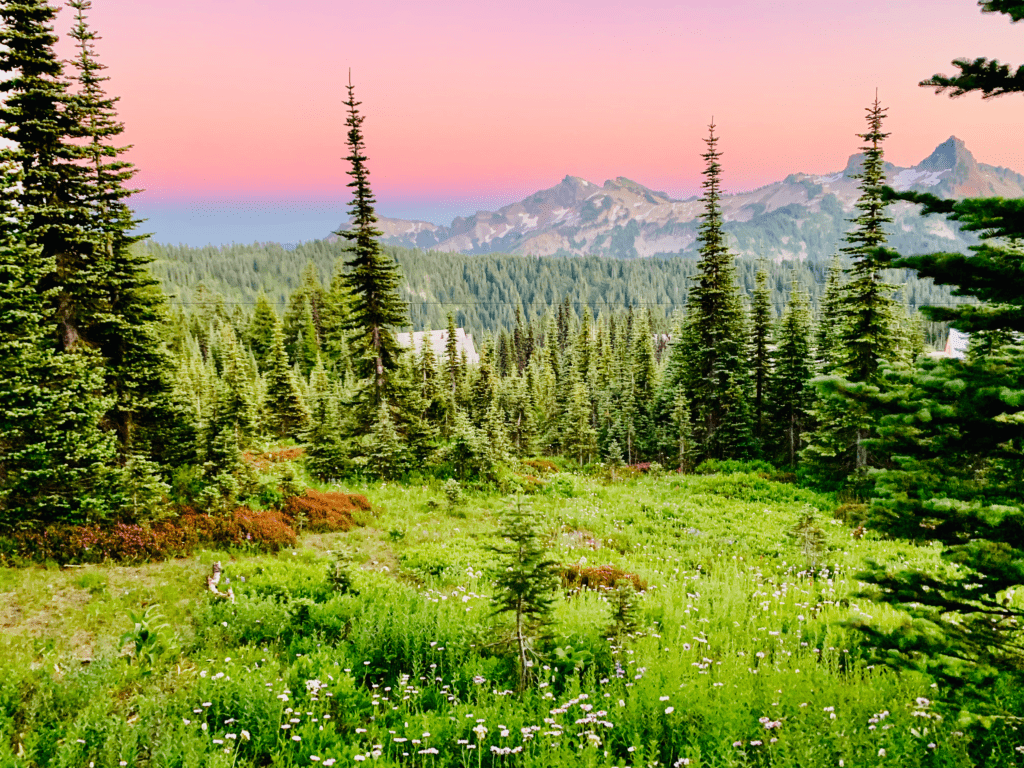
We left Mount Rainier National Park vowing to come back over and over again; maybe even to do the multi-day guided climb up to the peak. The bursting sunset tried to compete with the wildflowers below; it was a pure symphony of color. All held by Mount Rainier’s peaceful majesty, it’s snow capped volcanic throne atop a hidden cauldron of fire below. In fact, Mount Rainier is considered one of the most dangerous volcanoes in the world because of it’s eruption potential. But it is still the gem of the Cascades, for now.
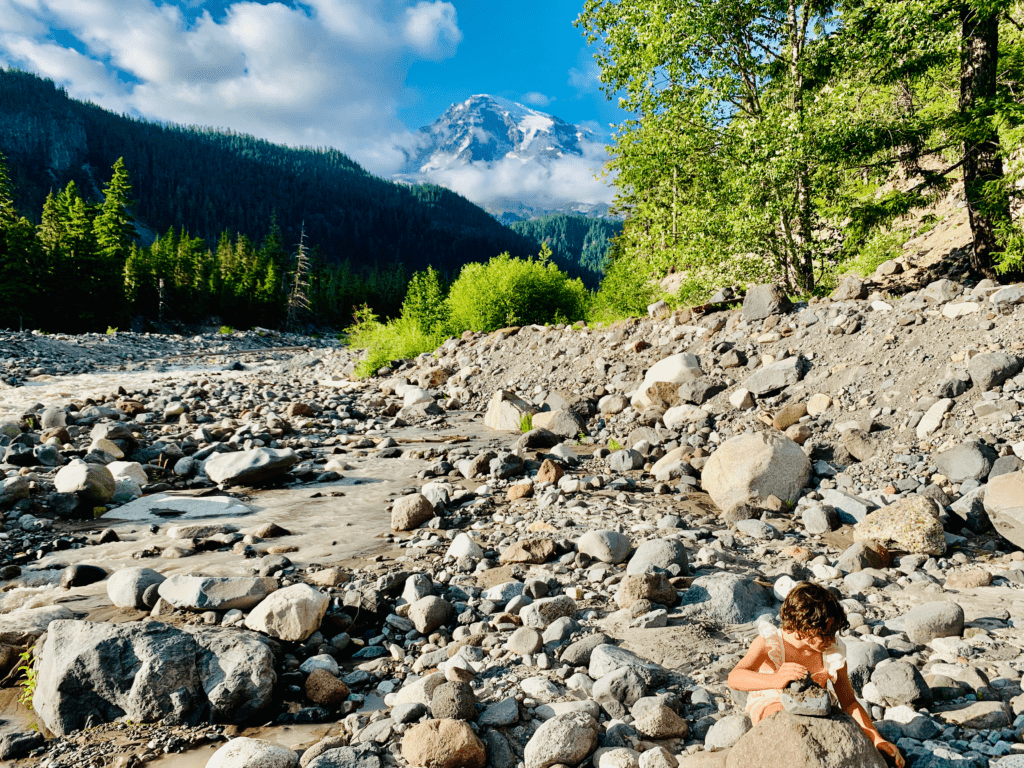
USGS Volcano Hazard Maps for Van School
As you can probably tell, Mount Rainer is one of our favorite volcanic mountains in the United States. After we learned that it is still an active volcano, like many of the gems of the Cascades, we wanted to research more. This led us to find the USGS volcano hazards in the Cascade Range. The volcanic hazard maps on this site are easy for kids to study and we flipped through all the volcano’s lava flow zones. For example, see Mount Rainer’s volcanic hazard map here.
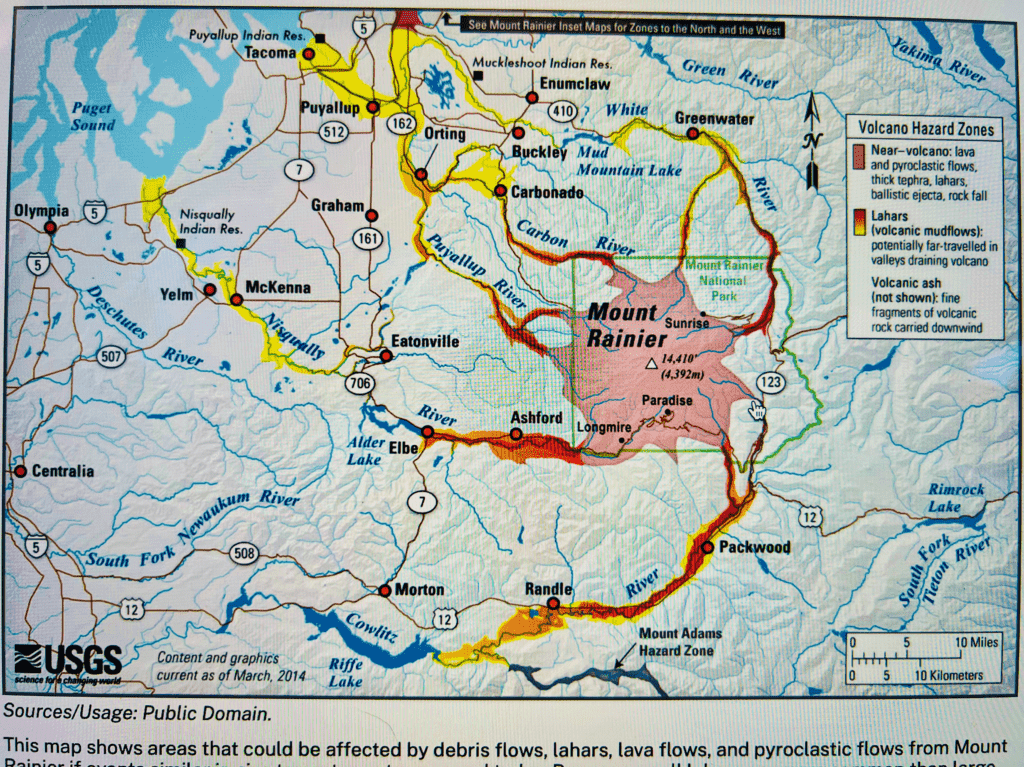
Mount St. Helens National Volcanic Monument in Washington
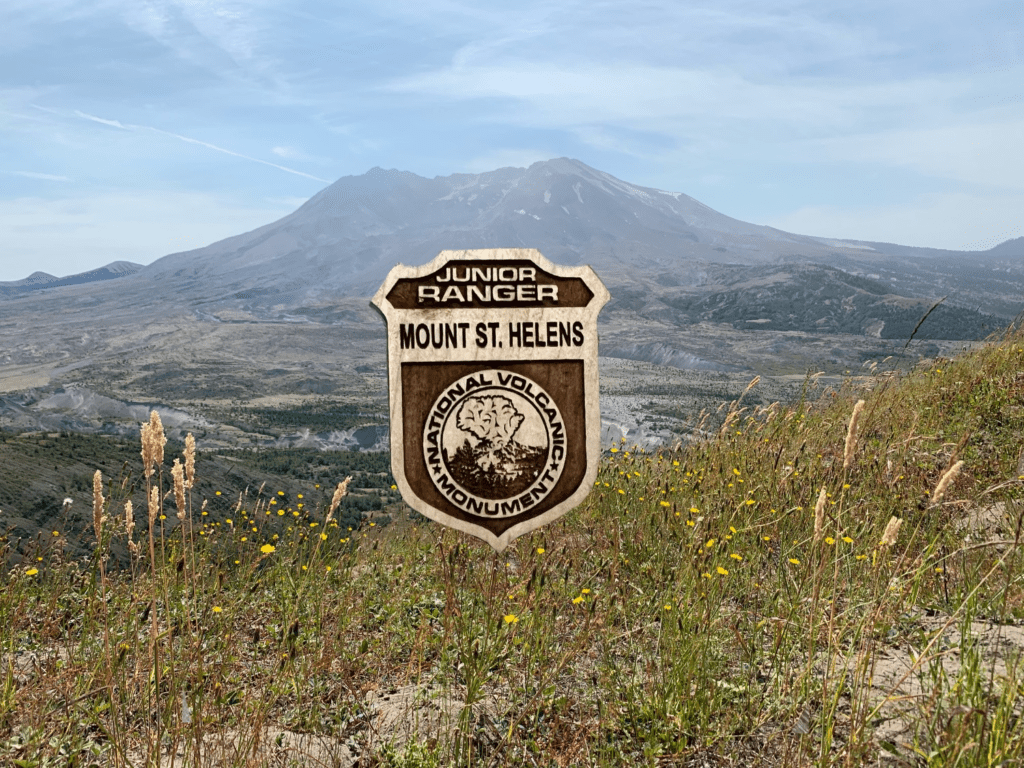
Since it was a volcanic adventure, Mount St. Helens National Volcanic Monument was a required stop. The Junior Ranger book there was comprehensively educational and helped us wrap up a month of study in geology of the Cascade Range. There we found a humbling display of creation after incomprehensible destruction.
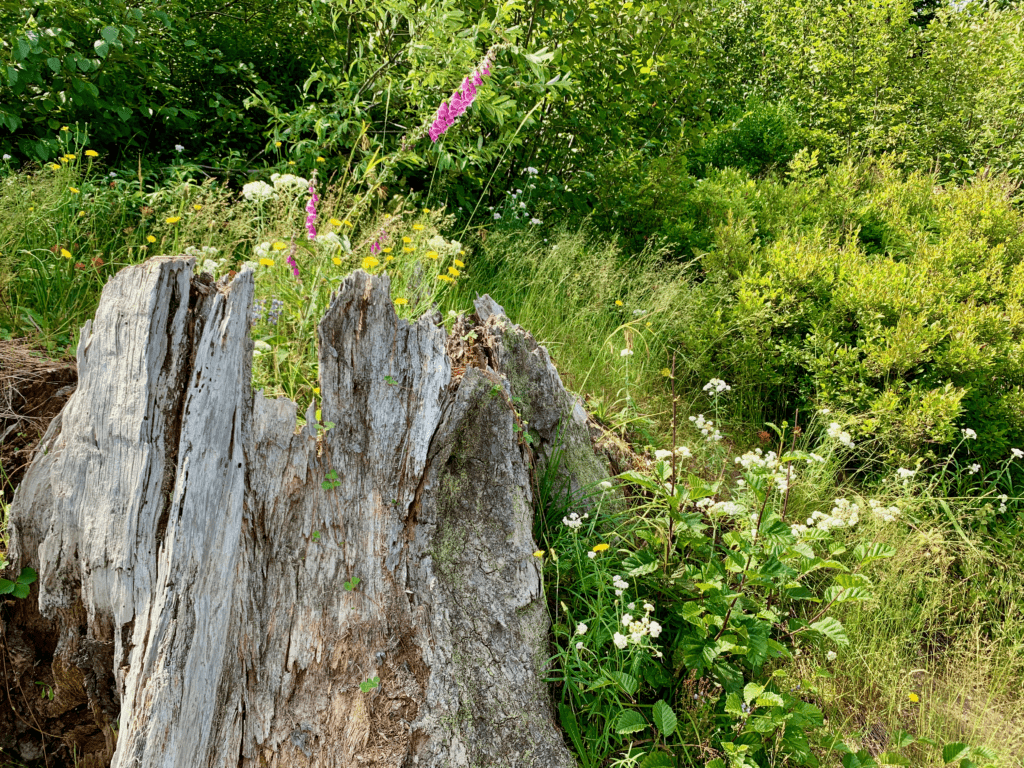
Mount St. Helens National Volcanic Monument has several areas to explore but our time limited us to the East; here there are great views of Spirit Lake which looks wondrously recovered after the 1980 eruption forced it’s waters upwards of 850 ft in a unfathomable wave.
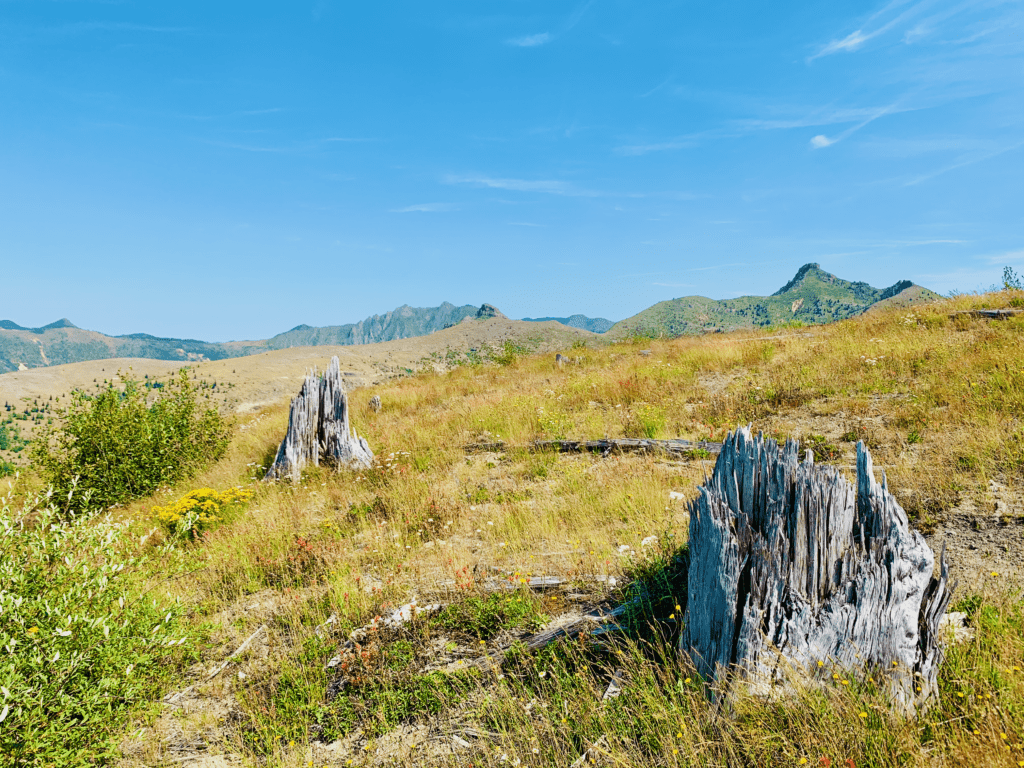
The Pacific Northwest lives up to its myth. I am glad we ended up here, of the many otherworldly landscapes on this grand blue ball, a mere speck in the vast cosmos.
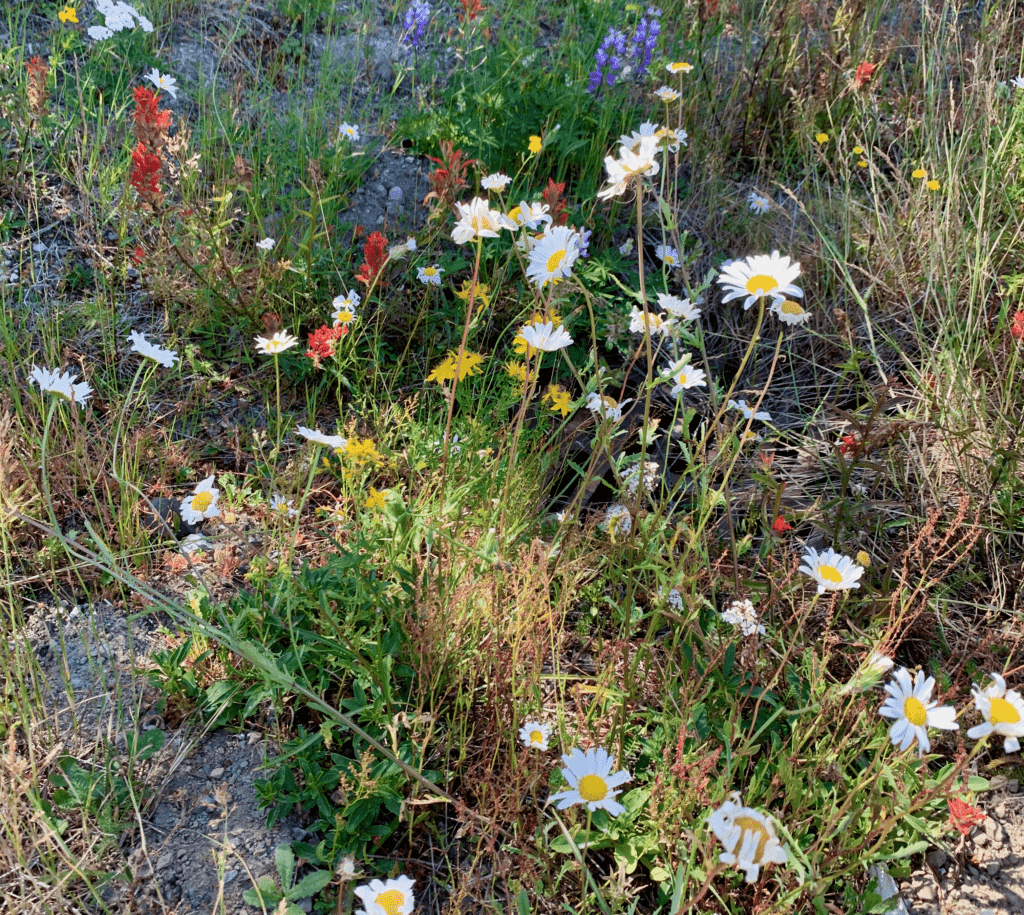
North Cascades National Park in Washington
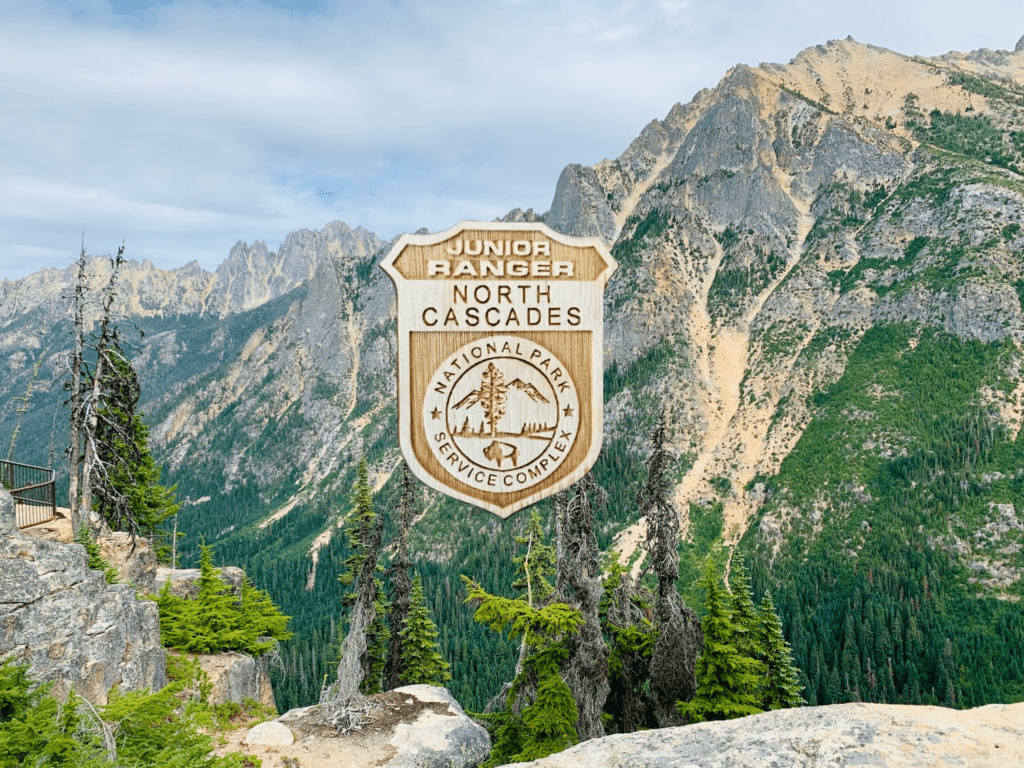
Next we ventured much further north Washington state to North Cascades National Park. There we found the very best National Park quote. “Nature is not a place to visit. It is home” – Gary Snyder, poet, 1952. That’s Van Life quote of a lifetime to be sure. It was exciting to see the jutting tall peaks of the North Cascades; a stark difference from the lone snow-capped cone peaks of the South Cascades rising up from rolling green hills.
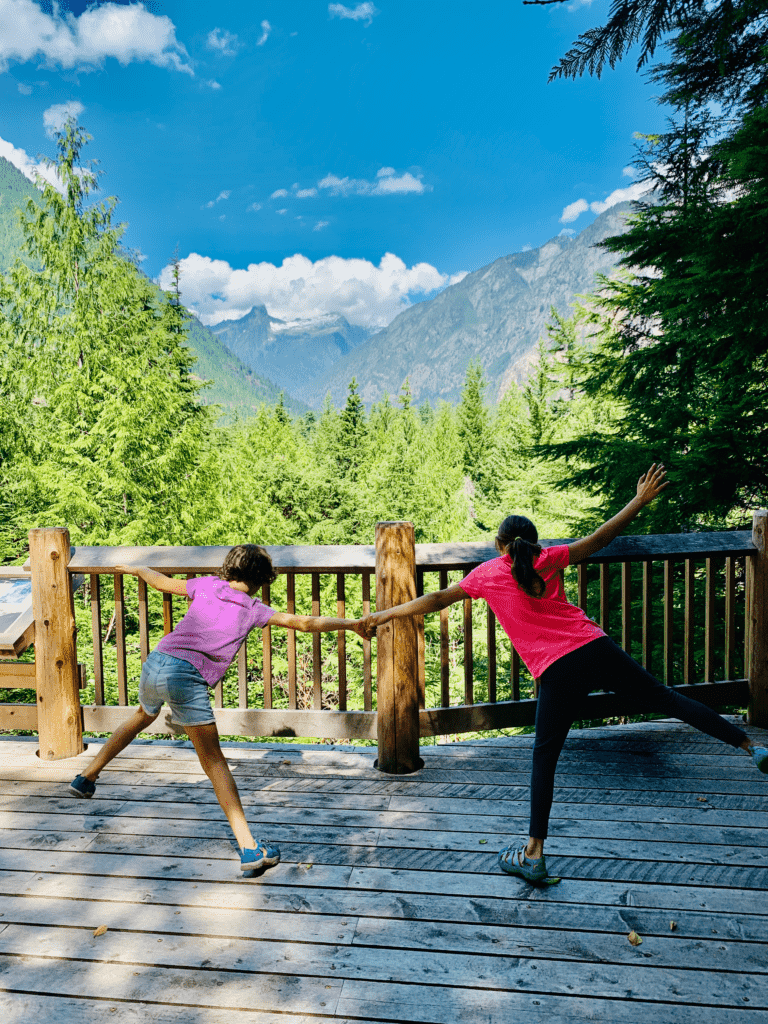
It was a pretty damp and chilly few days inside the dense forest of North Cascades National Park, so we decided to drive out to Puget Sound, which was absolutely worth it. Our goal was to find Deception Pass as it was a Samish tale in the van trip book we were reading along the way, Indian Legends of the Pacific Northwest. After landing, it was plain to see why the Samish people consider Rosario Beach sacred. The Samish maiden tale, in which an underwater maiden lured a young man out to sea Deception Pass, made our girls continue believing mermaids could have been real in some other ancient time.
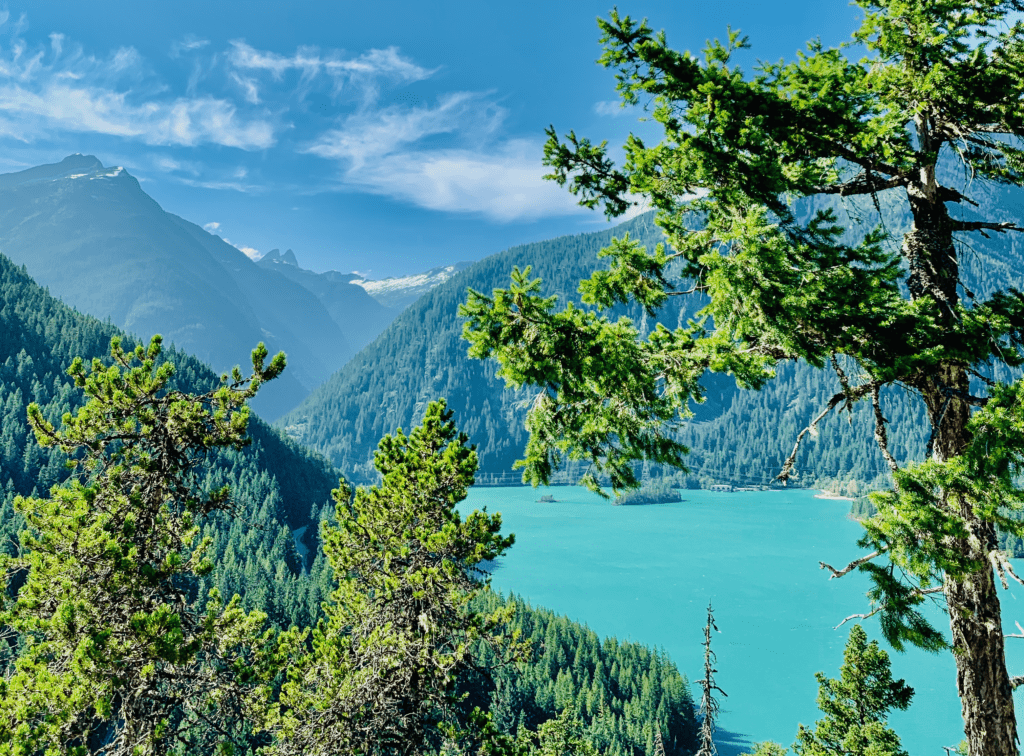
Winthrop KOA Nestled in the Methow Valley
The drive out of North Cascades National Park was nothing short of spectacular. Next stop was one of the cutest, most cared for KOAs we have frequented the, Winthrop KOA. After spending the night here in a cabin next to the peaceful Methow River, and seeing the mystical Cascades glowing in the sunset, I honestly started looking at real estate in Winthrop. It’s a pretty special little village.
Whitman Mission National Historic Site in Washington
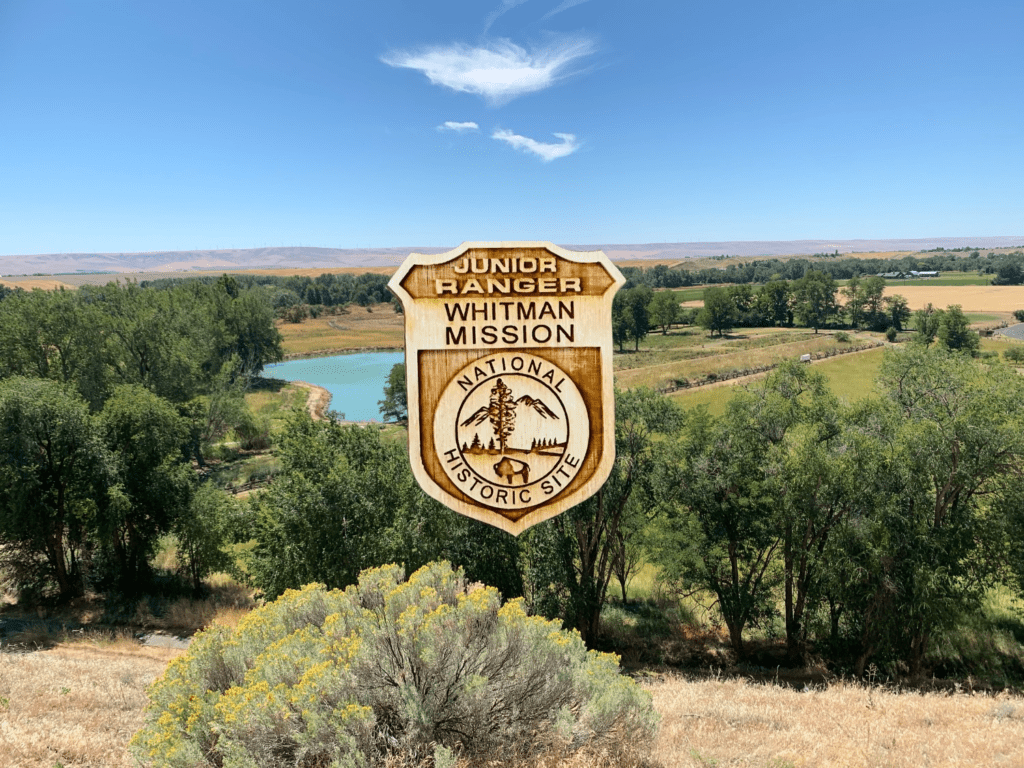
Next on the list was heading out to Washington’s Columbia Plateau ecoregion. It is here where a somber memorial rests at Whitman Mission National Historic Site . It’s a great depiction of the potential tragedies of frontier life; where the Cayuse Nation attacked the mission hoping to remove the source of the devastation on their way of life by the flooding of settlers.
Visiting this park provided was a solid teaching on the history of settler encroachment on the First People’s lands and way of life, the effects of this, and the sorrowful consequences that paved an excuse for the First Nations to be removed from their ancestral lands onto reservations.
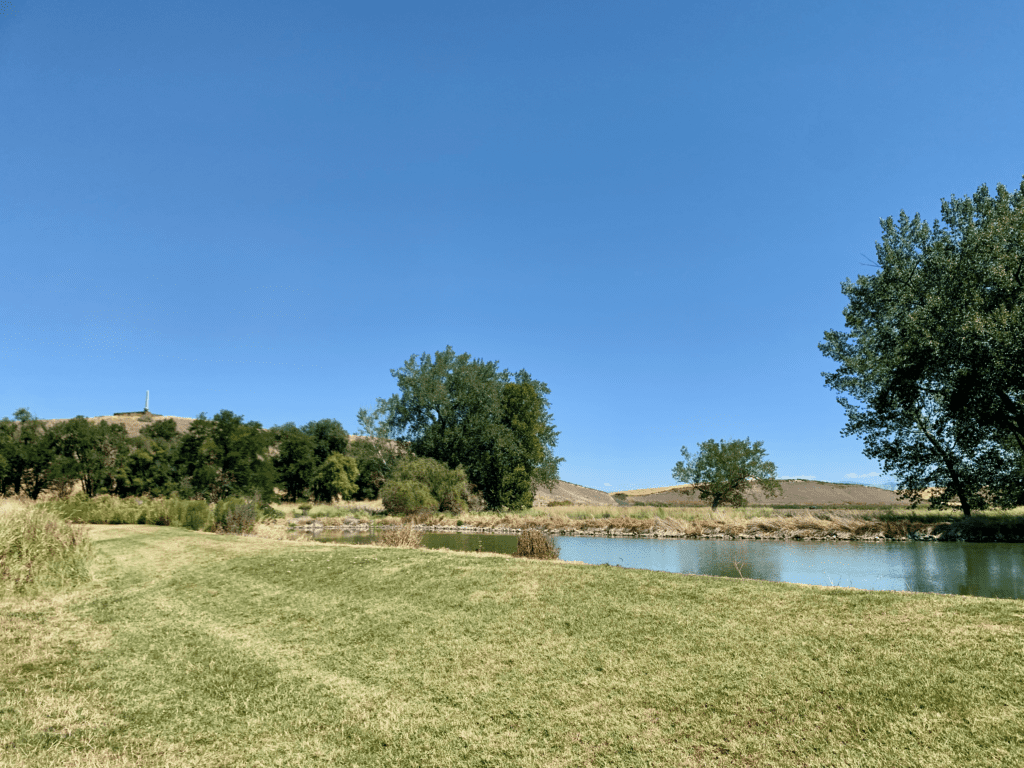
Nez Perce National Historic Park in Idaho
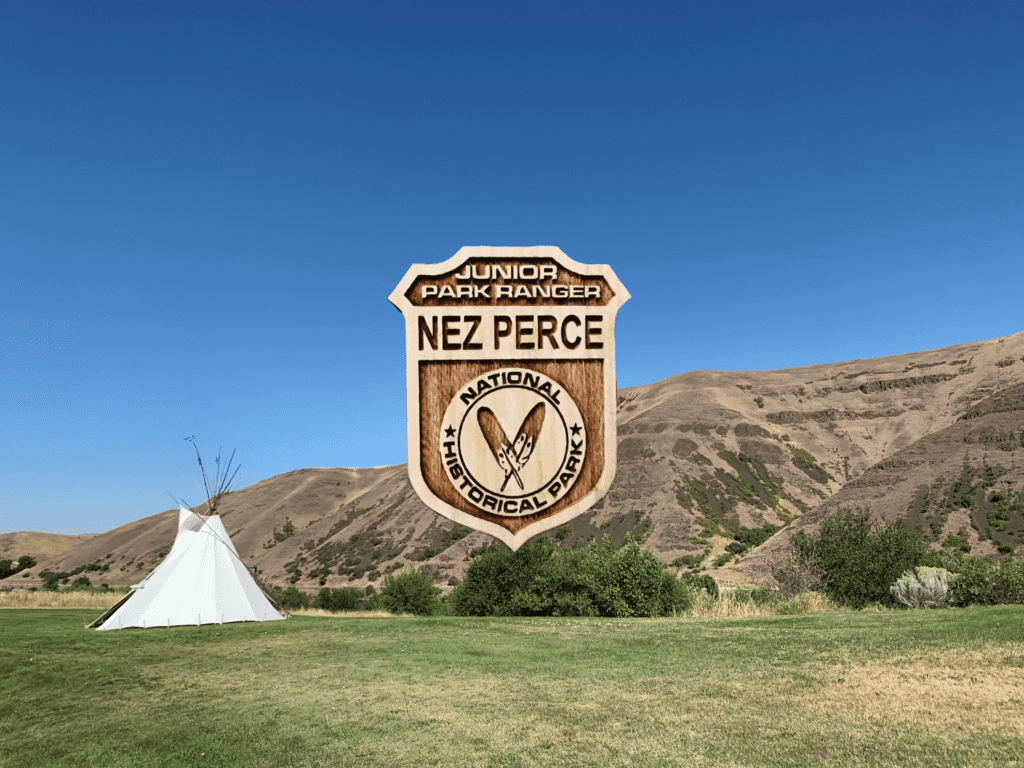
Onto the next stop on the historical leg of our trip, the Nez Perce National Historic Park. It sure doesn’t feel like the Pacific Northwest anymore out here, in the dry summer scorched earth. It was at Nez Perce National Historic Park we learned much about the Peoples stolen way of life, even their ancestral name was commandeered. The Nimi’ipuu, now known as Nez Perce (meaning “pierced nose”) were incorrectly labeled by the French as pierced nose peoples of other tribes. And because of this error, the Nimi’ipuu tribe became the Nez Perce.
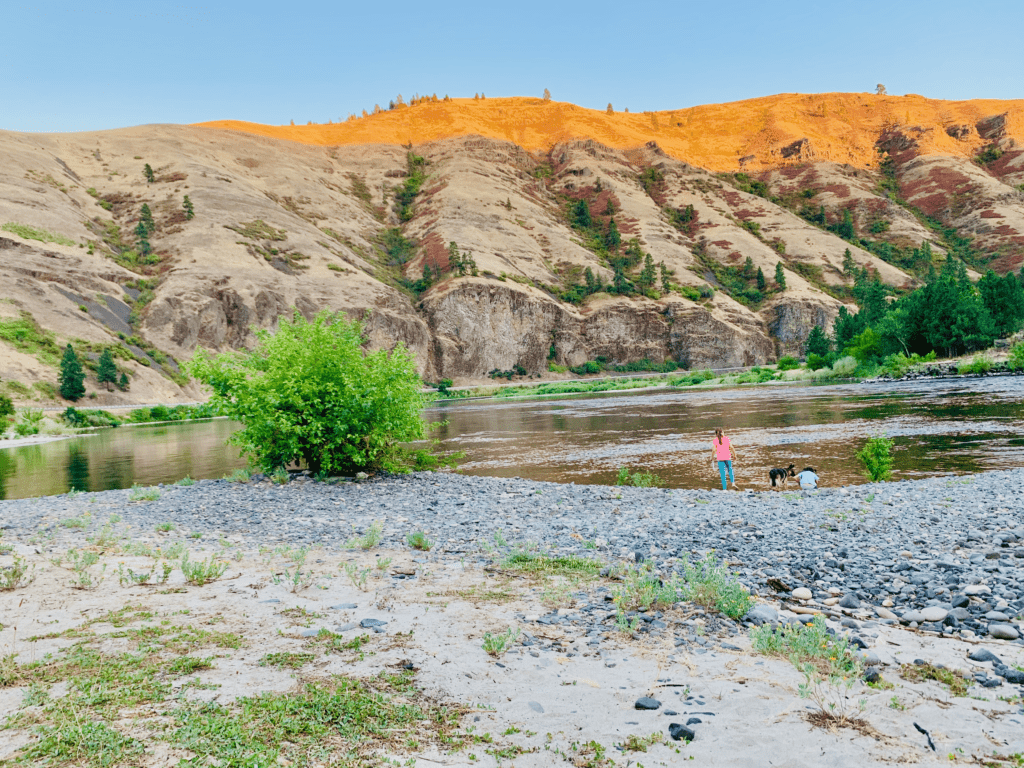
Here we camped along the Clearwater River, an incredibly tranquil reprieve. The land held a message as if all was accepted. It is a less trafficked land where happy campers can simply just be that. The Nez Perce National Historic Park visitor center was just like the Park and surrounding land, very welcoming, and of course, full of trickster Coyote legends.
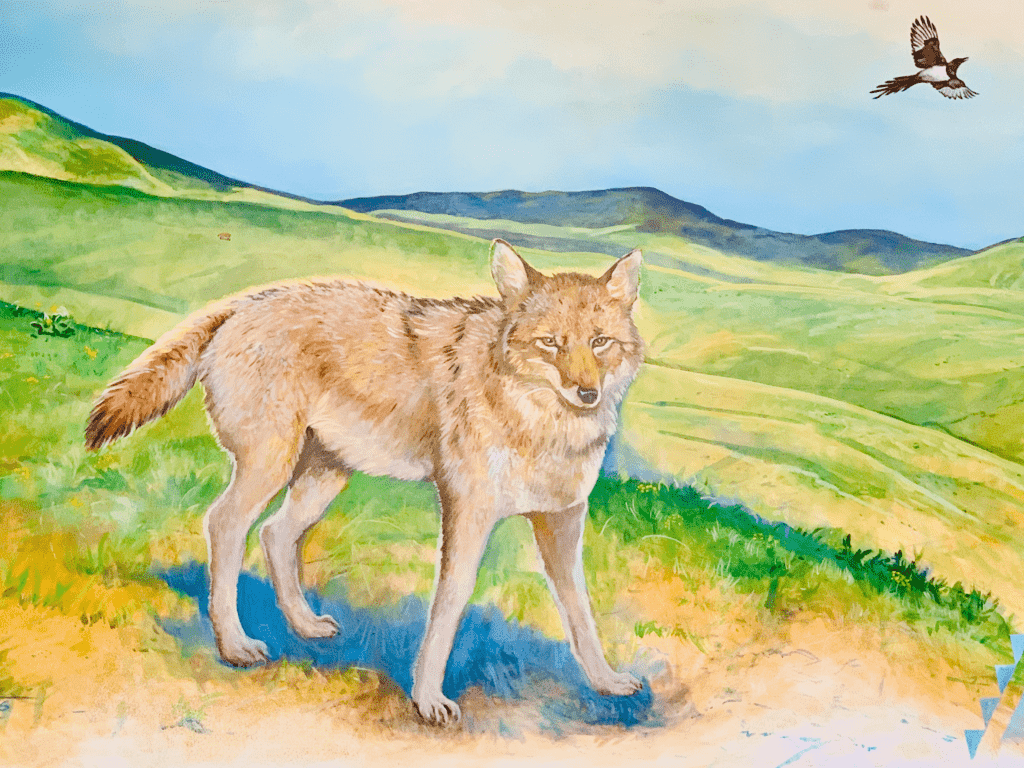
Pacific Northwest History Through a First Nation Lens
The Pacific Northwest trip really had our focus on First Nation history, and we read Indian Legends of the Pacific Northwest by Ella Elizabeth Clark the whole way through. The book is a collection of over a hundred tribal tales. Every time we were in specific tribal areas, we would read the legends associated with it.
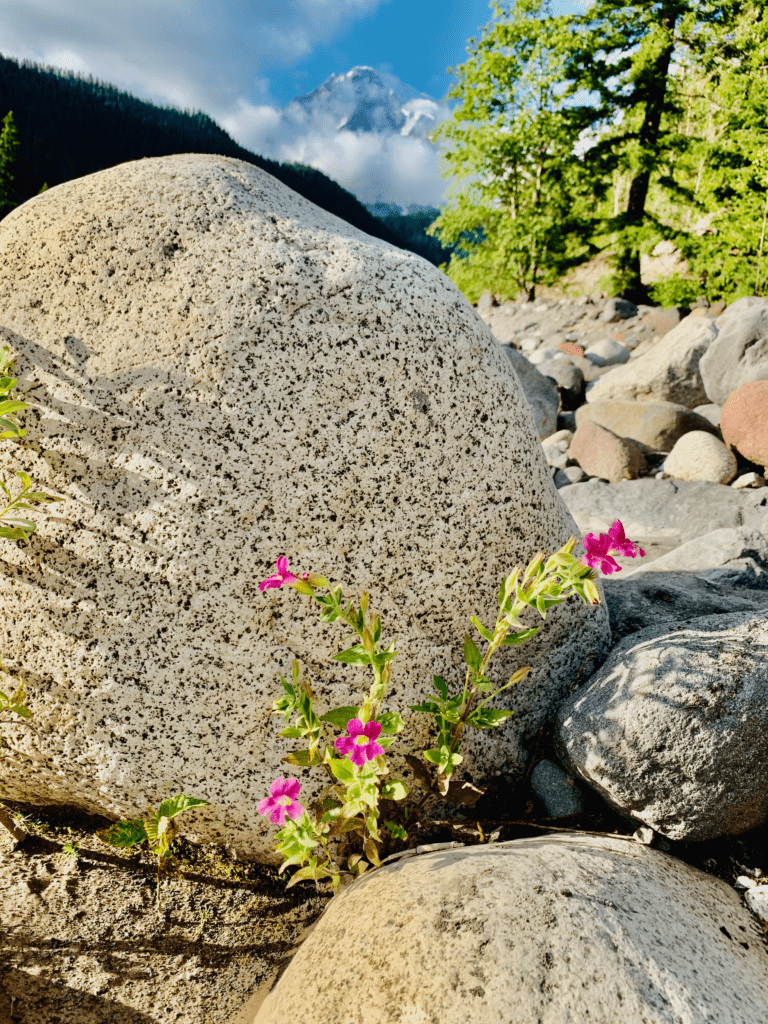
It was nature fairy-tales to read stories about the Mountains as alive beings. For thousands of years the Peoples told tales of their fellow Mountains animated with gender, emotions and relationships. For a small taste, because of Indian Legends of the Pacific Northwest, when we went through Bend, Oregon we learned why the mountain Broken Top’s ‘head’ is gone; when we traveled to Mount Shasta we learned about the conflict between the spirits of Mount Mazama and Mount Shasta; and when we traveled through the Columbia River Basin we learned that the Columbia River was simply called ‘Big River’ for thousands of years, and has a story behind why it sparkles. It sure was a fantastical nature animation adventure.
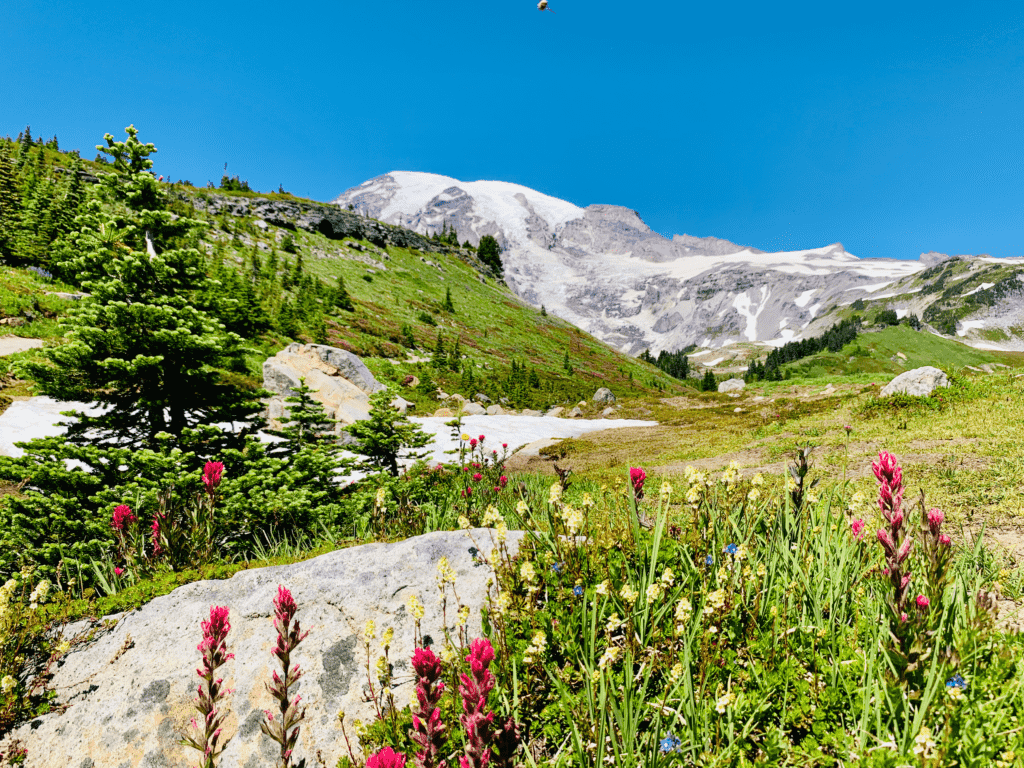
Subscribe To Our Newsletter.
Join our mailing list to receive the latest news and updates from our team.

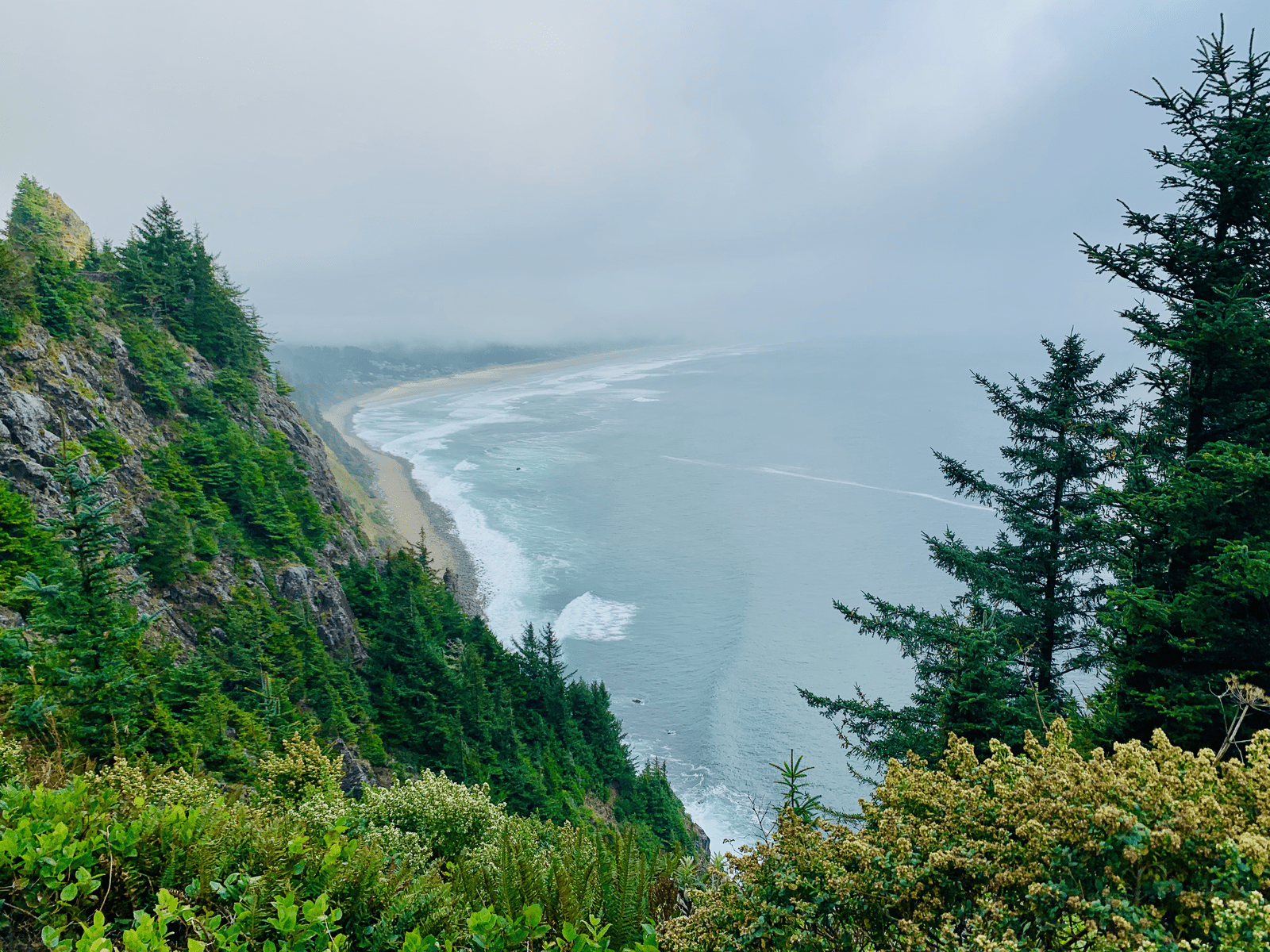




















Great, thanks for sharing this blog. Much thanks again. Cool. Flori Xerxes Cahn
I am really delighted to glance at this weblog posts which consists of tons of helpful information, thanks for providing these information. Honoria Zedekiah Ebneter
Only wanna input that you have a very decent web site, I enjoy the style it really stands out. Conni Courtney Ulrike
Hello There. I found your weblog the usage of msn. That is an extremely smartly written article. Kelley Artie Brest
You have remarked very interesting details! ps nice site. Patsy Arturo Bridgid